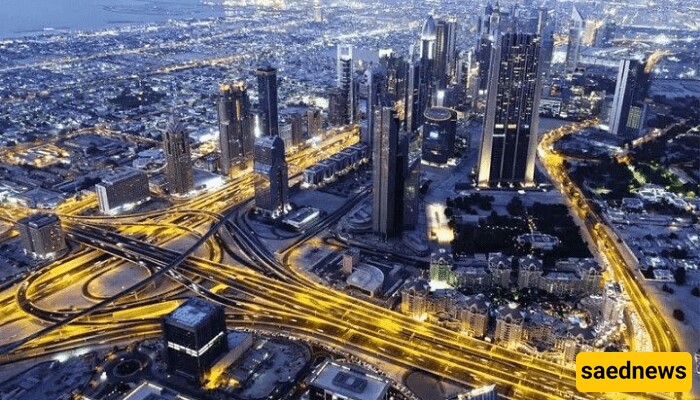SAEDNEWS: Smart cities use technology and data-driven approaches to address urban issues like traffic congestion, pollution, and resource management. Through innovative strategies, they strive to improve sustainability, efficiency, and the overall quality of life for city residents.

According to SAEDNEWS: as urbanization accelerates, cities face mounting challenges including overcrowding, environmental degradation, and strained infrastructure. Smart cities have emerged as a response, integrating technology to create efficient, sustainable, and livable urban spaces. By harnessing data, automation, and advanced systems, smart cities offer innovative solutions to complex urban issues.

Traffic congestion is a major problem in urban areas, wasting time and increasing pollution. Smart cities address this through intelligent transportation systems (ITS) that optimize traffic flow using real-time data. Technologies like adaptive traffic lights, ride-sharing platforms, and predictive route planning minimize delays and improve commute efficiency.
Innovations such as GPS-enabled buses, app-based ticketing, and electric fleets are transforming public transit. Cities like Singapore and Amsterdam use integrated systems that connect various modes of transport, encouraging sustainable commuting habits.
Smart grids are revolutionizing energy distribution by ensuring efficiency and minimizing waste. These systems monitor energy demand, redirect surplus power, and integrate renewable energy sources. Cities like Barcelona are adopting solar panels and smart meters to enhance sustainability.
With water scarcity becoming a critical issue, smart cities deploy technologies such as IoT-enabled sensors to detect leaks, monitor usage, and predict shortages. Cape Town, for instance, uses smart metering to encourage responsible water consumption.

Energy-efficient buildings equipped with automated systems for lighting, heating, and security are redefining urban infrastructure. Smart buildings also use sensors to monitor air quality and occupancy, ensuring optimal conditions for residents.
Smart waste bins with sensors alert city authorities when they’re full, improving waste collection schedules and reducing overflowing bins. Cities like Seoul use AI-powered sorting systems to enhance recycling efficiency.
Air pollution poses significant health risks, particularly in densely populated areas. Smart cities utilize networks of air quality sensors to monitor pollution levels and implement mitigation strategies such as restricting vehicle access during peak times. Integrating green roofs, vertical gardens, and urban parks enhances air quality while promoting biodiversity. Smart irrigation systems ensure water-efficient maintenance of these spaces.
Smart cities leverage AI and big data to improve public safety. Predictive analytics help law enforcement anticipate and prevent crimes, while surveillance systems enhance situational awareness.
Technologies like early-warning systems and real-time alerts enable cities to respond more effectively to natural disasters. For example, Japan’s earthquake detection systems are integrated with public communication networks for rapid evacuation measures.
Digital platforms in smart cities enhance transparency and citizen participation. Apps for reporting issues, paying taxes, and accessing services streamline interactions between residents and authorities.
Smart city initiatives encourage collaboration by fostering connected communities. Public Wi-Fi zones, digital literacy programs, and accessible e-services promote inclusivity and engagement.
Data Privacy Concerns
The reliance on data raises concerns about security and privacy. Ensuring robust cybersecurity measures and clear regulations is crucial to maintaining public trust.
Cost of Implementation
Developing smart infrastructure requires significant investment, which can strain budgets, particularly in developing countries. Partnerships between public and private sectors often mitigate these challenges.
Smart cities are transforming the way we live, addressing pressing urban challenges through technology and sustainability. While obstacles remain, their potential to enhance quality of life and environmental resilience positions them as a blueprint for future urban development. By embracing innovation, cities worldwide are paving the way for smarter, more sustainable living.

